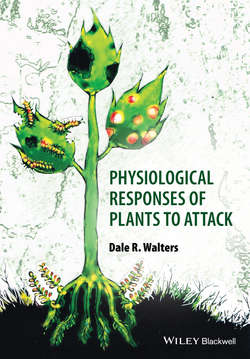Описание книги
Despite the research effort put into controlling pathogens, pests and parasitic plants, crop losses are still a regular feature of agriculture worldwide. This makes it important to manage the crop appropriately in order to maximise yield. Understanding the relationship between the occurrence and severity of attack, and the resulting yield loss, is an important step towards improved crop protection. Linked to this, is the need to better understand the mechanisms responsible for reductions in growth and yield in affected crops. Physiological Responses of Plants to Attack is unique because it deals with the effects of different attackers – pathogens, herbivores, and parasitic plants, on host processes involved in growth, reproduction, and yield. Coverage includes effects on photosynthesis, partitioning of carbohydrates, water and nutrient relations, and changes in plant growth hormones. Far from being simply a consequence of attack, the alterations in primary metabolism reflect a more dynamic and complex interaction between plant and attacker, sometimes involving re-programming of plant metabolism by the attacker. Physiological Responses of Plants to Attack is written and designed for use by senior undergraduates and postgraduates studying agricultural sciences, applied entomology, crop protection, plant pathology and plant sciences. Biological and agricultural research scientists in the agrochemical and crop protection industries, and in academia, will find much of use in this book. All libraries in universities and research establishments where biological and agricultural sciences are studied and taught should have copies of this exciting book on their shelves
